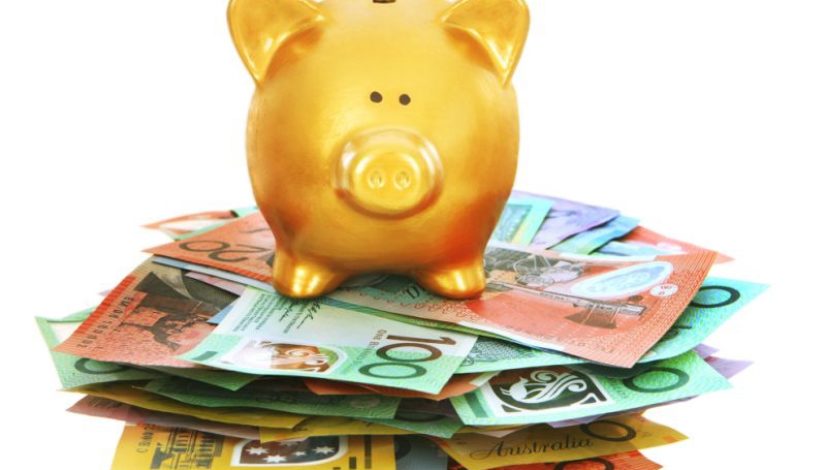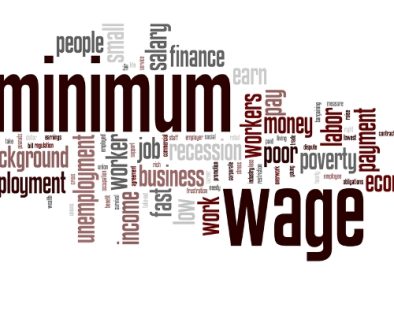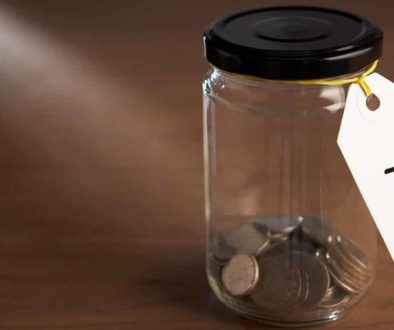Early Access to Super
You can only have early access to your super in very limited circumstances.
Be aware that some promoters claim to offer early access to your super by transferring your super into a self-managed super fund. These schemes are illegal and heavy penalties apply if you get involved. For more information, refer to Illegal early release of super.
On this page:
- COVID-19 (novel coronavirus) – early release of superannuation
- Access on compassionate grounds
- Access due to severe financial hardship
- Access due to a terminal medical condition
- Access due to temporary incapacity
- Access due to permanent incapacity
- Super less than $200
- First home super saver scheme
COVID-19 (novel coronavirus) – early release of superannuation
Applications for early release of superannuation (super) will be accepted through ATO online services in myGov from 20 April.
You can register your interest now by logging in to your myGov accountExternal Link and following the Intention to access coronavirus support instructions. If you don’t already have a myGov account, you can set one up by selecting ‘create an account’.
We will notify you by email or SMS when applications open. You do not need to phone us.
About the measure
The government is allowing individuals affected by COVID-19 to access up to $10,000 of their superannuation in 2019–20 and a further $10,000 in 2020–21. Individuals will not need to pay tax on amounts released and will not need to include it in their income tax return.
Eligible Australian and New Zealand citizens and permanent residents will be able to apply to access up to:
- $10,000 of their super before 1 July 2020
- a further $10,000 from 1 July 2020 until 24 September 2020.
To apply for early release, you must satisfy one or more of the following requirements:
- You are unemployed.
- You are eligible to receive a job seeker payment, youth allowance for jobseekers, parenting payment (which includes the single and partnered payments), special benefit or farm household allowance.
- On or after 1 January 2020, either
- you were made redundant
- your working hours were reduced by 20% or more
- if you were a sole trader, your business was suspended or there was a reduction in your turnover of 20% or more.
The government has also announced that eligible temporary residents will be able to apply to access up to $10,000 of their super before 1 July 2020.
To apply for early release as a temporary resident, you must satisfy one or more of the following requirements:
- You hold a student visa which you have held for 12 months or more and you are unable to meet immediate living expenses.
- You are a temporary skilled work visa holder, your working hours have reduced to zero and you remain engaged with your employer
- You are a temporary resident visa holder (excluding student or skilled worker visas) and you cannot meet immediate living expenses.
You will not be required to attach evidence to support your application; however, you should retain records and documents to confirm your eligibility.
Withdrawing your superannuation may affect your:
- income protection insurance
- Life / Total Permanent Disability insurance cover.
Insurance may not be available on accounts that:
- are fully withdrawn
- have a balance below $6,000.
Consider whether you need to seek financial advice before starting your application.
Be aware
We’re concerned about scams or schemes where people:
- impersonate the ATO, or a trusted organisation like your super fund, to steal your money or personal identifying information
- contact you and charge for services that are free, like gaining early access to your superannuation.
If you receive a phone call, text message or email offering to help you release your super early, do not:
- provide your personal information
- click on any links.
You can contact us to confirm if an interaction is genuine.
See also:
Access on compassionate grounds
You may be allowed to withdraw some of your super on compassionate grounds. Compassionate grounds include needing money to pay for:
- medical treatment and medical transport for you or your dependant
- palliative care for you or your dependant
- making a payment on a home loan or council rates so you don’t lose your home
- accommodating a disability for you or your dependant
- expenses associated with the death, funeral or burial of your dependant.
See also:
Access due to severe financial hardship
Severe financial hardship is not administered by the ATO. You need to contact your super provider to request access to your super due to severe financial hardship.
You may be able to withdraw some of your super if you meet both these conditions:
- You have received eligible government income support payments continuously for 26 weeks.
- You are not able to meet reasonable and immediate family living expenses.
If you withdraw super due to severe financial hardship it is taxed as a super lump sum.
The minimum amount that can be withdrawn is $1,000 and the maximum amount is $10,000. If your super balance is less than $1,000 you can withdraw up to your remaining balance after tax.
You can only make one withdrawal in any 12-month period.
If you have reached your preservation age plus39 weeks and you were not gainfully employedwhen you apply, there are no cashing restrictions.
If your super provider requests evidence, contact the Services Australia to ask them to provide a letter confirming you have received eligible government income support payments continuously for 26 weeks or more.
There are no special tax rates for a super withdrawal because of severe financial hardship. It is paid and taxed as a normal super lump sum. If you are under 60 years old, this is generally taxed between 17% and 22%. If you are older than 60 years old, you will not be taxed.
See also:
- Early release of superannuation – How to applyExternal Link – on the Services Australia website
- How tax applies to your super
Access due to a terminal medical condition
You may be able to access your super if you have a terminal medical condition.
A terminal medical condition exists if all these conditions are met:
- Two registered medical practitioners have certified, jointly or separately, that you suffer from an illness or injury that is likely to result in death within 24 months of the date of signing the certificate.
- At least one of the registered medical practitioners is a specialist practising in an area related to your illness or injury.
- The 24-month certification period has not ended.
Contact your super fund to request access to your super due to a terminal medical condition.
Your fund must pay your super as a lump sum. The payment is tax-free if you withdraw it within 24 months of certification.
If your fund does not allow access due to a terminal medical condition you may be able to move your super to a different fund.
If you are suffering from a terminal medical condition and you have super held by us you can either:
- ask your provider to claim this on your behalf
- claim it directly from us yourself.
Next steps:
- Apply online via myGov, see Online services for individuals and sole traders
- Download the paper form Application for payment of ATO-held superannuation money (NAT 74880)
See also:
- Access due to terminal medical condition – in detail
- Changing super fundsExternal Link – on the Moneysmart website
Access due to temporary incapacity
You may be able to access your super if you are temporarily unable to work, or need to work less hours, because of a physical or mental medical condition.
This condition of release is generally used to access insurance benefits linked to your super account.
You will receive the super in regular payments (income stream) over the time you are unable to work. A super withdrawal due to temporary incapacity is taxed as a super income stream.
Contact your super provider to request access to your super due to temporary incapacity and to ask about insurance implications attached to your account.
There are no special tax rates for a super withdrawal due to temporary incapacity.
If you do not have access to insurance benefits as part of your super account, consider whether you would be eligible for access due to severe financial hardship.
See also:
Access due to permanent incapacity
You may be able to access your super if you are permanently incapacitated. This type of super withdrawal is sometimes called a ‘disability super benefit’.
Your fund must be satisfied that you have a permanent physical or mental medical condition that is likely to stop you from ever working again in a job you were qualified to do by education, training or experience.
You can receive the super as either a lump sum or as regular payments (income stream).
A super withdrawal due to permanent incapacity is subject to different tax components. For you to receive concessional tax treatment, your permanent incapacity must be certified by at least two medical practitioners.
Contact your provider to request access to your super because of permanent incapacity.
To work out how your super payment will be taxed you need to know how much of the money in your super account is a:
- tax-free component
- taxable component the super provider has paid tax on (taxed element)
- taxable component the super provider has not paid tax on (untaxed element).
If you’re under your preservation age andreceive a disability benefit as an income stream, you will get tax offsets that reduce the tax rate on the taxed element of your taxable component by 15%.
If you have reached your preservation age or if you get a lump sum, your disability benefit will be taxed at the rates described in How tax applies to your super.
See also:
Super less than $200
You may be able to access your super if:
- your employment is terminated and the balance of your super account is less than $200
- you have found a ‘lost super’ account with a balance less than $200.
Contact your provider to request access. Check the eligibility criteria for withdrawing super from ATO-held accounts.
No tax is payable when accessing super accounts with a balance less than $200.
See also:
First home super saver scheme
To help you save for your first home, you can apply to release voluntary concessional (before-tax) and voluntary non-concessional (after-tax) contributions you have made to your super fund since 1 July 2017. You must meet the eligibility requirements to apply for the release of these amounts.
You can apply to have a maximum of $15,000 of your voluntary contributions from any one financial year included in your eligible contributions to be released under the FHSS scheme, up to a total of $30,000 contributions across all years. You will also receive an amount of earnings that relate to those contributions.
See also:




